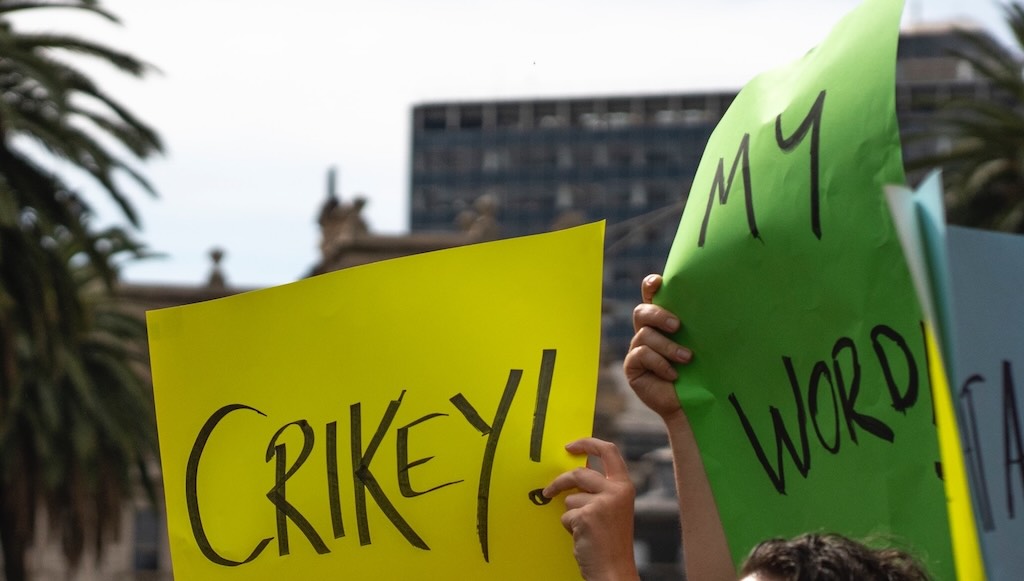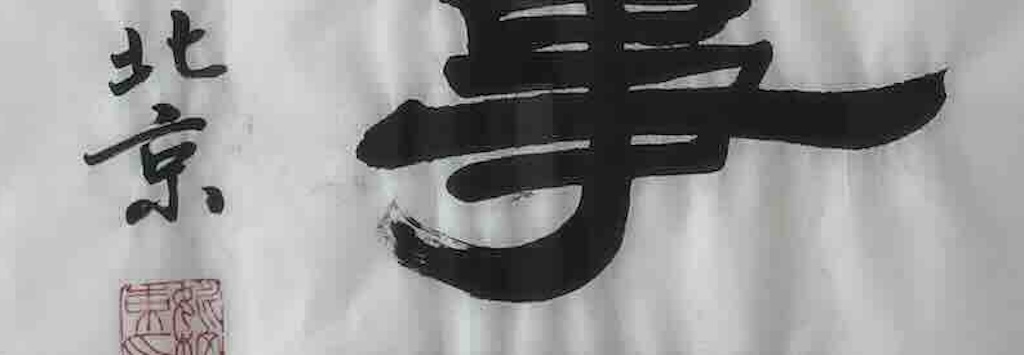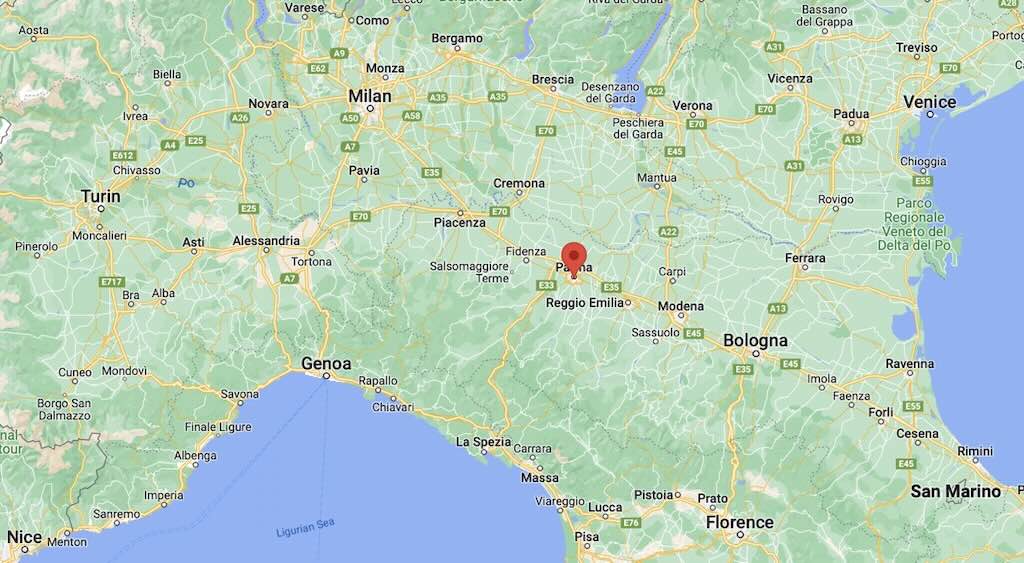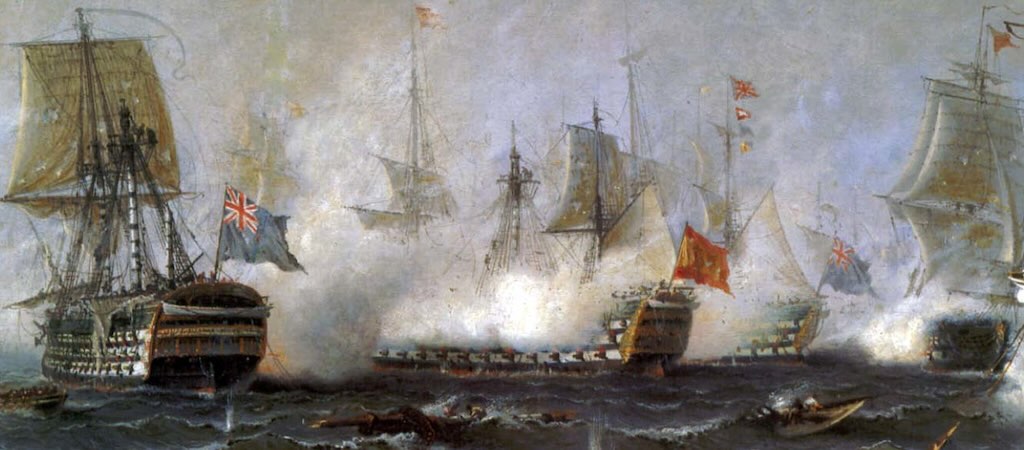Going through different vocabularies from the past I realised that as a teenager and young man I had used a multitude of slang words (so from the early-sixties to mid-seventies).
What amazed me was the enormous number of expressions that I used or understood when I was younger, and I am still occasionally surprised to find that one of my ‘normal’ words turns out to be slang.
My English slang - early 60s to mid 70s
What’s not in these posts are all those expressions that whilst having weathered the ravages of time, don’t really capture that period, at least in my mind. Examples such as “don’t look a gift horse in the mouth” which dates from 400 AD, or “don’t even think about it” which dates from a later period (the 1980’s), are not included. So some slang expressions were always there in the background, and others appeared well after the mid-70’s.
I’ve tried to focus on what I would have said or understood, and what represents that great period animated by The Beatles, The Rolling Stones, Cream, The Who, early Dylan, Pink Floyd,…, through to Queen, Eagles, ELO, Roxy Music, Bowie, Janis Joplin, Santana, etc.
Along the way I have also dropped some of the more crude expressions. Even now I can’t bring myself to admit that I was quite fluent in their use, but putting them “pen to paper” is another thing.
And as several online resources enjoy pointing out, many of “my” expressions are now “old school”, who would have thought it!
C
Cabbie – a taxi driver
“Cabbie” dates from 1948.
Cack-handed – meaning left-handed, or clumsy
Being left-handed, this definition is not easy. “Cack” comes from the Old English “cac-hus”, meaning to void excrement (mid-15th century). And cack-handed, or cag-handed has meant left-handed and awkward since 1854. Evidently it does not take long to mention that people would use their left hand for cleaning themselves after defecating, thus left hand equals cack hand. However the first citation for cack handed dates only from the mid-19th century, and the reality is that “ceck” or “keck” simply meant awkward or clumsy, without any reference to excrement. I’ve also read that there is “caggy-handed” as well, avoiding the mention of “cack”.
And just to cover all the bases, left-handed in different cultures means, sneaky, mistrustful, not working properly, the “dark side”, inside-out, ill-omened, wrong, bad, disaster, accident, impolite, rogue, strange, stupid, crooked, maimed, sinister, twisted, unfaithful, illegal, badly made, the Devil, lizard, jinxed, wry souled, a woman, freak, weak, obstinate, non functional, and finally FAVOURABLE (thank you to Sweden).
Cadge – ask for or obtain, as in “he was always trying to cadge a quid off his mates“
The Middle English (ca. 1400’s) for a peddler was “cadgear”, and initially “cadger” meant “to carry”. To “cadge” as to beg, dates from the early 1800’s, and it was probably someone begging but trying to look like a peddler.
Cakehole – mouth, as in “shut your cake-hole“
“Cakehole” dates from 1943 and is probably service slang in the British airforce. The Americans adopted “pie-hole” in the 1980’s. Don’t mistake it for “cake face” which means someone with too much make-up on.
Call it a day – go no further, as in “we have been driving since early this morning, so I think it’s time we called it a day, and start looking for a hotel“
The expression started out as “call it half a day”, dating from 1838. Whereas “call it a day” dates from 1919, and “call it a night” from 1938. It just means the end of work, and time to go home.
Camp – effeminate mannerisms
This could date from as early as the mid-17th century, and may derive from the French “camper” , to pose or portray. Later it would mean to put yourself in “a bold, provocative pose”. From here, and with the exaggerated actions and gestures (ca. 1909), it probably meant to play up the affected and silliness for a “camp” effect (ca. 1960’s).
Can – toilet, as in “I need to go to the can”
“Can” as an airtight container dates from 1867, and as a toilet from 1900. In America, since 1912, “can” has also been used to mean “jail”, whereas “the clink” was preferred in Britain (Clink Prison was one of England’s oldest prisons). In each of these cases the word itself was probably in use before being finally put to print.
Cancer stick – cigarette
Cigarette is just French for a small cigar, and the slang expression appears to be Australian.
Can of worms – a complicated issue or situation, as in “I don’t want to know, it’s just a can of worms“
Origin unknown, but probably to do with fishing. The expression has been around since the 1920’s.
Carry the can – be the scapegoat, take the blame, bear the brunt, as in “he was left to carry the can“
The exact origin is unclear, but many think it is of military origin from the 1920’s. For some the “can” was explosives, for others it was more likely beer. In the navy there is an expression “carry the keg” which relates to carrying a grudge. Many think that given the preference for cans, it may be of American origin, although in Britain they had the expression tin can, which could lead one to think of the responsibility for not spilling a can of beer.
Cash in – to profit from, as in “he cashed in his chips, and ran for it”
Certain the word “cash” existed in 1593, and derived from the French “caisse”, or money chest. As a verb “cash in”, it appears to date from ca. 1935.
Cat in hell’s chance – not very likely, as in “your team doesn’t have a cat in hell’s chance of winning the cup“
The original expression was “no more chance than a cat in hell without claws”, and dates from 1759, and the claws appear to have been dropped only in 1783. In 1892 the phrase was a lack of peace in hell for cats, and not a lack of chance.
Certified – insane, as in “if he’s not already certified, he should be“
Just means that someone is “officially certified” insane, bonkers, mad, …. In this sense it’s one level higher than just being insane, and suggests that the person should be “locked up for good”.
Chancer – taking foolish risks, as in “be careful with him, he’s a chancer at everything he tries“
Certainly the idea is that the person is a unscrupulous or a dishonest opportunist. It appears to be a phrase in use between the mid-18th century through to about 1800, where if fell out of use. However I can remember it being used a lot, as in “he’s a right chancer”, said with just a tinge of admiration (ca. 1970). There is also the expression “to chance his arm”, pretending to be someone they are not.
Chap – man, as in “he’s a decent chap“
Chap is an abbreviation of “chapman” a wandering peddler, and both chapman and cheap derive from “chop”, to barter.
Charlie – fool, as in “I felt a right Charlie“
This may have some relationship to London night watchmen who were called Charlies, after Charles I, who looked to curb street offences by improving the night watch. Or it might refer directly to Charles I, who made “a right charlie” of himself by getting his head chopped off.
Charming! – ironic response, as in “Charming! I must say, and up yours too“
Of course you have to start with “charm” from the Old French “charme” meaning magic, song, etc., and ca. 1300 “charm” also meant to recite or cast a magic spell. From the mid-15th century “charm” meant to win over, to treat pleasingly, to delight, but its definition weakened over time, until in the early 18th century it was just to “highly please”. I can’t find any references to the ironic “Charming!”, but it appears to have become a more popular expression since 2000.
Chat up – to talk, flirt, seduce
“Chat up” has its origin in the 15th century, with the Middle English “chatt”, short for chatter. Today “chat’ is used in many different ways, e.g. “quick chat”, “drop in for a chat”, “have a right chatter”, “he’s a right chatterbox in class”, etc., and finally “chat up” as in engage in flirtatious conversation. You also should not forget the importance of the online chatrooms. It is said “chit chat” (gossip of a group) originated in the 13th century, but the first reference dates to 1710, as being the “custom of foolish people”.
Chav – uncultured, anti-social
The word “chav” simply means “child”, and “chivvy” has been around since the 19th century. Frankly, I can’t remember ever hearing it used during my teens, but since 2000 it has come to define a working class person (grouping together all the usual stereotypes, i.e. stupid, anti-social, uncultured, etc.) but with money to buy designers clothes (they love Burberry) and then mix them with sports shoes, baseball caps and bling (fake jewellery).
Cheapskate – stingy person
It looks as if this is an American construction using the word skate (a common fish) taken from blatherskate (a gabby person full of nonsense or hot air), part of the chorus of a popular 17th century Scottish song “Maggie Lauder“.
Cheers! – drinking toast
Initial “cheerio” meant goodbye or good health, but it gradually became cheers, which can also means thanks, when acknowledging a small favour. The early medieval meaning for “cheer” was face, and by that, expression or mood, ca. 1225. By the mid-1400’s the classical phrase was “what chere be with you?” before drinking.
The custom of touching glasses is said to date at least from 1820. The reality is that it maybe much earlier. One total myth is that it initially started by sloshing the contents of the glasses together so that you could not poison the other. Another idea was that clinking glasses would frighten demons away, but the problem was that at that time most people drunk with wooden tankards or clay cups that wouldn’t make much of a sound. However, some Germanic tribes would bang their cups on the table before drinking to knock out ghosts. The Greeks would deliberately spill some wine before drinking, because the first drink should be taken by the Gods.
But possibly the true origin is that people would fix small bells to the handles, so that when cups were touched they gave off a nice tinkle. How that Sumerian drinking tradition got into English pubs is another question.
Cheesed off – disgruntled, fed up
May be linked to “hard cheese” meaning the same thing. It was probably a British military tradition that people would be annoyed when the cheese was hard (i.e. old). The first references is supposed to be from 1941, which linked “browned off” with “cheesed off”. There’s one explanation for “big cheese” which is that it was an American expression dating from 1899 (as “main cheese”), and then later in ca. 1910 as “big cheese”. However, there is another British oriented suggestion. In Hindi “thing” is “chiz”, and in the early 19th century this word came back in the form “the big chiz” when the expression “the real thing” was fashionable. So the idea is that they morphed into the “the real cheese”. It then crossed the Atlantic (the “pond”) and finally came back “big cheese”. Many uses of “big cheese” were derogatory comments about self-importance.
Chew – eat, as in “this is a bit chewy for my taste“
The Old English was “ceowan”, meaning to “bit, gnaw, chew”, and in 1725 a “chew” was a wad of tobacco, “chewing gum” appeared in 1843, and in 1906 it was a kind of chewy candy. Already in the late 14th century you could “chew over something” (think about), and in 1885 you could “chew the rag” (probably British army slang for discuss). Again army slang from WW II you could “chew someone out”.
Chick – girl or woman, as in “what a hot looking chick” or “three cool chicks“
As far as I can tell the first references to a “chick” is from 1927, and it is now often considered an offensive term (not when I was a teenager).
Chicken – cowardly, as in “he chickened out at the last minute“
It is said “chicken” was already in use in the 14th century to mean cowardly, but to “chicken out” appears to date from only 1934 (as a verb). Shakespeare used “they flye Chickens” as a noun in Cymbeline (1623).
There is an odd history concerning a chicken. Recruits to the Union Army (1864) were supposed to have been given a chicken. They were to take it home, clean, dress and cook it for dinner. If they came back the next day they would be shipped off for the Union Army. The names of those who did not return were printed in the local newspaper. But a family member could replace the missing man and save the family from shame. It’s probably not true because there are no references to this story. There were earlier references to people being “game chickens”, probably referencing cock-fighting that was only abolished in Britain in 1835. Certainly in that context “chicken” was not associated with cowardice.
Chicken-feed – a pittance, as in “I was hoping to win big, but all I got was chicken-feed“
The origin is in the fact that chickens were fed grain too poor for any other use. And it was first used to describe how riverboat gamblers would pick up “chicken feed” from small-town suckers. “Chicken feed” was already a “paltry sum of money” by 1897.
Chin – talk
Besides being the lower part of the face, and overlapping with “cheek” and “jaw”, you could from the 1590’s “press affectionately chin to chin”. To “chin” as in “gossip” dates from 1883, and “to bring to the chin” from 1869 meant to raise a fiddle and play. To “take it on the chin” arrived in 1924, from puglism. And most important of all, from 1913, you could be an optimist and “keep your chin up”.
China – mate, friend, pal, as in “how’s things, my old china“
This is pure Cockney rhyming slang, with “china plate” rhyming with “mate” as in friend.
Chinky – a Chinese
“Chink” dates from about 1880, and “chinky” first appeared in 1878.
Chinless wonder – someone upper class who is gormless (the “wonder” is ironic)
It would appear to have been an American phrase first used in 1910, but the actual intended meaning was not clear. You had to wait until 1918 for a link between “chinless” and royalty.
Chippy – a fish and chip shop, as in “after the flicks (cinema) lets pop by the chippy“
One obvious meaning for “chippy” is a carpenter (may be of navy origin), however Americans also called a prostitute a “chippy”. Here the word refers to a fish and chip shop and those who work in it. The “institution” of fried fish certainly existed in 1839, because it’s referred to in Oliver Twist. It is thought that selling fried fish with chips may have started in ca. 1860.
Chip on one’s shoulder – resentful, envious
In 1830 it was reported that in America when two people wanted to fight, one would place a chip on their shoulder and demand that the other knock it off, and it came to mean “looking for a fight”. There is of course the expression “chip off the old block“. This expression started out as “chip of the same block” (in 1621) and meant to be the child of someone and be of the same value. In 1642 the expression changed to “chip of the old block”, which much later changed to “chip off the old block”.
Chocolate-box – something sentimentally pretty, but overly conventional and boring
The “expression “chocolate box” was first used in ca. 1865, but by ca. 1900 “chocolate-box” started to take on the idea of excessive decoration.
Choosy – fastidious, as in “she won’t go for you, she’s too choosy“
“Choosy” appears to be American, and dates from 1862.
Get the chop – sacked
Origin unknown, but Americans tend to say “get the axe”. One reference points to the use of the expression by the British airforce, meaning to be shot down and killed or injured. However the expression appears to have started to be popular only in the mid-1950’s.
Chop chop – hurry, quickly
The original “chop, chop” was pidgin English and came from the word chopsticks, which itself came from a Chinese name for eating implements meaning “the quick or nimble ones”.
Chuck – to throw, as in “it’s not worth anything, just chuck it away“
The word “chuck” was first used in ca. 1580, but its origin is uncertain, but the word is related to cuts of meat as well as blocks or logs of wood.
Chuck out – throw out, as in “chucking out time” for the pub closing time
Origin unknown
Chuffed – pleased, as in “you could see it from his smile, he was dead chuffed with himself“
The origin is “chuff” which meant swollen with fat (ca. 1520), but it was first recognised as meaning happy in 1860. However there is the alternative with “chuff” meaning “a coarse, fat-headed, blunt clown” (i.e. rude) from the mid-15th century, and even in 1832 it meant “displeased and gruff”. “Chuffed” appears to have been first used in 1957 as “pleased”. There appears to be also the word dischuffed meaning gruntled (or should that be disgruntled).
Chum – close friend or pal
This word dates from 1684 and probably from Oxford University slang, possibly a shortened version of chambermate (i.e. room mate).
Cig/ciggie – cigarette, and in “have you got a ciggie for me mate“
Except the obvious abbreviation, origin unknown. My guess is that “ciggie” comes from WW II, but it appears to have gained a new popularity over the last 20 years.
Cinch – easy to do, as in “once you know the trick, it’s a cinch to get it right“
The word “cinch” came from the Spanish “cincha” (saddle firth) and was a strong belly band used on hose saddles. It came to mean a firm hold or tight grip, and then as an American term something sure and easy.
Back in circulation – someone who is again free from romantic ties
Origin unknown, but it looks as if the expression originated in the 1920’s.
City slicker – smooth person from the city, as in “those city slicker don’t know their left from their right“
This expression sounds very American. There is a clear negative connotation, possibly created by “country bumpkins”, and which might date back to the around 1915. One might think “slicker” would suggest someone sharp and clever, therefore the term is understood to be somewhat sarcastic.
Civvies – civilian clothes as opposed to uniforms
The basic sense of the word is someone not in uniform, thus it’s likely to be military slang, probably from WW II. The British had the expression “civvy street” for civilian life.
Clammed – closed, silent, as in “I kept my mouth clammed shut“
To “clam up” means to be silient, quiet, or refuse to speak, as in “the witness clammed up”. It’s an American idiom first seen in the 1910’s, and obviously inspired by clams that shut themselves tight when attacked.
Clanger – embarrassing mistake or blunder, as in “he dropped a clanger“
“Clanger” has it origins in Latin and Greek, meaning to ring out or resound, and that means it’s an easy to see/hear “blunder”, and that it “rings out” (at least metaphorically). It looks like the expression “drop a clanger” appeared around 1942, and was associated with the British army. There is a suggestion that “drop a clanger” replaced “drop a brick”. I’ve not seen any references, but I would guess that a word like “clanger” must date from earlier times.
Clapped out – worn out, as in calling a old car a “clapped out banger“
Interestingly, one suggestion is that the expression “clapped out” comes from hunting. When a hare stops to catch its breath, it sits on its hind legs, and it’s heavy breathing give the impression that it’s front legs are clapping. A hare that stops running is “clapped out”.
Franky, almost any alternative sounds more plausible. “Clapped out” is far more likely to be an American aircraft after WW II that was no longer safe to fly. But you don’t need to be a machine to be “clapped out”, e.g. “I was too clapped out to go to yoga yesterday”. There are lots of equivalents out there, e.g. “battered”, “seen better days”, “beat up pile of junk”, “the worse for wear”, etc.
Like the clappers – very fast, as in “he came past me going like the clappers“
It would appear that this expression was used a lot by the Royal Air Force during WW II (1942). Although there is an earlier reference (1934) mention a car “that goes like the clappers”. And of course the “clapper” is what rings inside a bell, so there were references mentioning peoples tongues “going like the clapper of a bell” (1823).
Claptrap – nonsense, as in “I’ve never heard a bigger load of claptrap“
The word “claptrap” was first recorded in 1727, and was a playwright’s trick to catch applause, and only later did it become to mean pretentious, insincere, and empty language.
Take to the cleaners – to cheat or swindle someone, as in “the banks are taking their customers to the cleaners by jacking up the interest rates“
This appears to be a 20th century expression, and means to take someone’s goods or money, leaving them destitute. This could just as easily be through gambling as in the courts. It probably derives from the earlier expression “to clean someone out” (ca. 1921), usually associated with gambling and “fleecing a dupe”. Now with the advent of dry cleaning we have a new expression. There was a nice reference to a race track as being “the greatest cleaning establishing on the continent”. Another nice expression when the victim of a knockout in boxing is “sent to the cleaners” (1907).
Clean up – make a considerable profit
This expression meaning to “make a profit” dates from 1878, and to “make a large profit” from 1929. There is also a reference to “cleaning up the bases” in baseball (1910), i.e. getting those already on the bases in so they score.
In the clear – innocent, no evidence against someone, as in “I wasn’t in the country, so I’m in the clear“
As you can imagine “clear”, dating from the 1300’s, means many things, including light, shining, bright, beautiful, entire, whole, etc. and later absolute, excellent. etc., not forgetting a “clearing in the forest”. By the mid-14th century it took on meanings such as “make clear” (explain, lucid), “make clean” (purify, clarify), “clear the air”, “loud and clear”, as well as “prove innocence and vindicate” (as with our expression “in the clear”). Also by then expressions such as “clear weather”, “clear sky”, “to clear up”, etc. pointed to nautical expressions such as “clear the coast” (ca. 1520). In the 1580’s “clear” meant “free from murkiness”, in the 1670’s “to clear” as in “out of the way”, and in 1791 “to clear” could mean “to leap over”. In 1719 you could make “a clear profit”, in 1701 “clear your voice”, find a “clear space” (1715), “clear the deck” (1802), “clear out” (1825), and in 1881 you could “clear your throat”.
Clever-boots/-clogs – clever person (possibly said with a sarcastic tone)
In the 16th century “boots” was a term for “fellow”, so we had “clever fellow”, which in the north of England was easily converted to “clever-clogs”. Later you could find “smooth boots” meaning a flatterer, and even “sly-boots” meaning a cunning or crafty fellow. “Clever-dick” is a similar expression, but meaning “obnoxiously clever”. Now I wonder where the “dick” came from?.
Clobber – to hit, assault, as in “he got clobbered from behind“
This use of “clobber” appears to be British Air Force slang from 1941, possible relating to bombing. It might be that the US Air Force took the word back to the US, and it caught on. It appears to have be used often in the American sports press with titles such as “Trail Blazers got clobbered by the Knicks” (1990). There was a period 1970-90 when “clobber” was more popular in Britain, but now America is the main user of the word.
Clobber – clothes and stuff, as in “she kicked him out, and chucked his clobber in the gutter“
This use of “clobber” dates back to the late 19th century. You could “clobber up” meaning to patch up old clothes, dating from 1851. It might have it origins with a “clobber” or type of dark paste used to cover breaks in old shoe leather (but I truly doubt it).
Clock – face
We all know the word “clock”, and maybe we know that the word derives from the Latin word “clogga”, or “bell” (“ticking” was already used in the 1500’s). But we are interesting in the metaphorical use of the word, and in particular the fact that “clock” has been slang for the human face since 1870 (as has “dial”). Then came to “clock someone” as in to time them (ca. 1880). To “clock someone” was American slang to watch patiently someone, dating from 1929. It can also mean to “catch sight” of someone/something (1935), as in “I clocked a traffic warden doing her rounds”. To “clock” someone can be to follow them, as in “get on his daily” (i.e. to “tail”), dated to 1967. And there is “to clock” as in measure the speed of a car, e.g. “he was clocked doing more than a ton (100)”.
Perhaps most importantly “clocked” is also slang to strike someone in the face forcefully, as in “I clocked him one, square on the jaw” (1932), or “I cleaned his clock” (1940’s). Some sources put both in the mid-1900’s, which might be more reasonable since “fix someone’s clock” dates from 1904.
Clock in/out – register time of arrival and departure at work, as in “he clocked in late“
Since the 1800’s time clocks (with punch cards) have been used to record workers arriving and leaving. They clocked in (punched in) and clocked out (punched out). I wonder if the result was the expression “time is money” (but no because this expression dates from 1748), or “time flies” (no again, this is even older if you remember “tempos fugit”, which dates back to the 1st century BC).
There is also “on the clock” meaning to be working, which dates from the early 1900’s, and it can also mean to “run out of time” which is similar to “against the clock”. And not forgetting “working round the clock”, but you could also “run down/out the clock” as in “playing for time”. And finally in our Internet world we have “clocked up one billion subscribers”. And hopefully everything continues to work “like clockwork”.
Closet – out of secrecy into the open, as in “coming out of the closet“
The “closet” originally referred to any drinker who tried to hide his drinking from others, and only in around 1959 did the American terms first get applied to gays.
Clot – fool
“Clot” is the Old English “clott” meaning “a round mass or lump”, and we already had “blood clot” in the 1590’s and “clotted cream” in 1799, although there was “clouted cream” already in the 1540’s. At one point in time “clot” also was a fool or stupid person. Dictionaries appear to occasionally mention “clod” and “clutter” along with “clot”. It would appear the “clod” was originally a “clot of blood”, then became a lump of earth, and later also “stupid person”. So there was a time when “clot” and “clod” were dirt or mud. But some sources also mention clutter as being a “clotted mass, to clot”, which later became a “confused heap” but also “noisy turmoil”.
In an interesting aside, one expert noted that many words that start with the “gl-” sound produce glowing, glistening, glittering objects, and the “sl-” sound produces slime, slops, slithering, and sleazy politicians, so the “kl-” sound produces clot, clod, clatter, cloud, etc. or images of things disorderly or dirty.
Cloth ears – not listening or responding, as in “Oi, cloth ears, are you listening to me!“
The expression “cloth ears” appears to originated in the weaving mills in the north of England where the noise and the dust was tremendous. After a while the workers adapted and became quite good a lip reading as well. The deafness was called “cloth ears” just as “boilermakers’s deafness” came from working in the steel mills. However the first reference to “cloth ears” dates from 1912, but it was probably in use from the 1880’s or before. There is a certain idea that “cloth ears” also suggested that someone was either stupid or not listening to you.
Cloud nine – a state of euphoria
It would appear that a very large cumulonimbus in September 1896 was called “cloud 9” in a new classification, and so it became known as the tallest floating cloud on Earth. This explanation has been questioned since there are 10 levels of classification, so why pick out the 9th? Another explanation is that the 10 levels started at 0, so cloud 9 was the biggest after all.
On the other hand there are many clouds that have kind of nicknames, e.g. “seventh heaven”, “cloud seven”, “cloud eight”, “cloud nine”, “cloud ten”, “cloud thirty-nine”. The earliest reference to “cloud nine” was in 1946, but “cloud seven” has more or less the same “heavenly” description as cloud nine. Another expert suggested that in Dante’s Divine comedy the ninth circle of heaven was nearest to God.
Clout – heavy blow, influence, as in “He’s a heavy hitter, he has clout where it counts“
“Clout” refers to power and political influence (ca. 1860’s), based on the meaning of “force” or “punch” (14th century).
In the club – pregnant
“In the club” is a British expression for being pregnant, dating from 1936, but probably known before then. Other expressions include “bun in the oven” and “in the pudding club” (1889). One must be careful, because before this expression took form, there was a real pudding club, with puddings as prizes.
Not having a clue/clueless – ignorant or incompetent
Tracing clue, or clew, first goes back to 1393 with a ball of yarn or thread. Much later “clues”, balls of thread, were used to “thread” people through labyrinths and mazes. This soon led to “clue” being something that points the way or indicates a solution, or solves a mystery. However, “clueless” appears to be Royal Air Force slang from the 1930’s.
Cobblers – nonsense or rubbish, as in “I’ve never heard a bigger load of old cobblers in my whole life“
Originally a “cobbler” repaired shoes, and they used a “cobbler’s awl” to punch holes in the leather. According to one source (from 1934) “cobblers” meant “balls” because it rhymed with “awls”, but at least since 1968 it has its present meaning.
Cock up – make a complete mess, as in “I was left stranded, I know someone must have made a cock up, but who?“
The origin of “cock” was “a spout or short pipe serving as a channel for passing liquids through”, and we can see how it might then have been used to define other things.
Codswallop – rubbish, nonsense, drivel, as in “you’re talking a load of codswallop“
The origin is unknown. However there is a very nice folk origin (i.e. fake), with a certain Hiram Codd, and English soft drinks maker in the 1870’s. His idea was to produce fizzy bottled lemonade. He placed a glass marble in the bottle as a stopper, the pressure from the fizzy pop forced the marble against the neck to form a seal. This was called a Codd-neck bottle. At the same time “wallop” was a slang term for beer, so some people have put the two together and obtained “codswallop” as a derisive term for a soft drink by true beer drinkers (since cod was slang for joke, as in “a load of cods”). One problem is that “wallop” as slang for beer appeared much later that the drink of Mr. Codd, plus the spelling is wrong, and finally “codswallop” only appeared in 1963, more than 80 years after Mr. Codd’s drink. The nicety of this folk origin is that there was in addition a wooden device that was placed over the neck of the Codd-neck bottle, and with a push (wallop) the glass marble was dislodged from the neck.
Also a “cod piece” was a “testicle bag”, and a “wallop” was to hit, so “codswallop” could mean being hit by or in a “testicle bag”, a totally unpleasant idea. Here is a great discussion of the origin of “codswallop”. And there is an additional expression, a “cod walloper”, which just might be a type of fishing vessel, so maybe “codswallop” was to do with the cod-fish. There is some evidence that in 1928 a “cods wallop” was “a woman who cannot keep her mouth shut”, so could “codswallop” actually be describing a person. If you want to know more, read the above link.
Comeback – recovery, ultimately a successful return after a long break or a series of failures
This would appear to be an American expression, dating from 1908, but based upon a verbal retort found in 1889.
Come clean – tell the truth, confess, as in “when presented with the evidence, he came clean“
This is an American expression from ca, 1904, meaning “not sullied by untruth”. There are a few other similar English expressions such as “to get it off your chest” and “make a clean breast of it” (1752). And other English expressions “keep one’s hands clean” and “keep your nose clean” date from 1711.
The word “clean” comes from Old English “clæne” and meant both morally pure and food “not forbidden by ceremonial law to eat”. By the 15th century it had often been replaced by “clear” and “pure”. “Cleaned-out” as in left penniless dates from 1812, “clean sweep” dates from 1938, and “clean” as being drug free, dates from the 1950’s.
Come it – pretend, exaggerate, or to be aggressive, as in “don’t come it with me“
Origin unknown, but probably an old expression.
Come off it – stop your nonsense
First recorded in the 19th century, it was in the mouth of Lady Brett Ashley, a character of Ernest Hemingway.
Come on – do this, get moving, go faster, sexual invitation
“Come on” can mean a request to hurry or go faster, or simply a request to do something, as in “Come on, you can’t stop now”, but a “come on” can also be viewed as a lure, or even a sexually oriented invitation. You can find the expression in “Come on, it’s not that bad”, “Come on, stop kidding around”, “Come on down”, “Come on, stop complaining”, or “Come on, you’ve had enough” (as in alcohol). These type of expression are more exclamations of disapproval or irritation. Some of the expressions, such as “come on” date from the mid-15th century or earlier, where “on” meant “forward”, as in “come forward”. “C’mon”, is the verbal phrase of “come on”, dating to 1929.
Con – confidence trick, as in “lucky, I spotted the con from the beginning“
Just after the American Civil War, one of the most common frauds was the sale of fake gold mine stock. One option was ask investors to make a small advance just “as a sign of confidence”, money they would no longer see. This was called a “confidence game”, and those who used the trick became “con men”. Over time the expression became con-game or con trick.
Conk – nose, but also to break-down (i.e. “my car just conked-out“)
It would appear that it is coined from WW I, perhaps based upon the noise of an engine stalling. Previously “conk” meant to be “hit on the head”, or “punched in the nose” (1821) because “conk” was slang for nose (1812). There are suggestions that “conked out” predates the WW I reference, with motorcycles “conking out” on hills (1911).
Cook – falsify, as in “cook the books“
As you can imagine the word “cook” has a long history, but you can imagine “make fit for eating” can be converted to “make fit for inspection”, as in “cook the books”. In fact “to manipulate, falsify, alter, or doctor” appears to date from the 1630’s. “What’s cooking” as “what’s going on” dates from 1942, and “cooking with gas” to mean “doing well or thinking correctly” dates from the 1930’s.
Cool – self-possessed, or just very good, pleasing, …
It is not sure where “cool” as a term of approval came from, but it could come from the British “cool” which meant imprudent or insolent. By WW I it meant clever or shrewd, and later still it meant great and excellent.
The idea that cool meant to be under control and dispassionate, came from a different root, and dates back to the year 1000. It is this definition that is found in the works of Chaucer and Shakespeare.
Cool it! – calm down
The American idiom “cool it” just means to ask someone to behave more calmly and stop being angry and aggressive. Of course “cool” was first used in ca. 1000 to describe the lowering of the temperature. Later it meant to lose the heat of excitement or emotion (Shakespeare used the word often). Shakespeare also used “cool” in the sense of becoming “cold with fear”. To “let something cool down” after heating it, dates from 1490. Certainly in 1918 “cool” meant “self-control and composure”, but it is based upon the idea of “cool” as “unflappable” which dates to the 1800’s. So keeping “cool” had both a physical and figurative meaning. “Cool” as in “calm” and “very nice” pop up in jazz songs, post WW II. I think the Americans used “cool” to mean “to knock out”, and also they called jail “the cooler”.
Cop/Copper – catch by the police
The origin of “cop” is English meaning “to catch or capture”, and dates for 1704 (presumably along with “copped”). It is not linked to copper buttons, badges, or words like “constable”, etc. It is possible that “copper” derived from “cop”. “Cop a plea” dates from the late 19th century, and involves pleading guilty to a lesser crime, thus escaping a worse punishment. A “cop shop” is a police station. There are 100’s of slang words for policeman, but the one’s I used/knew were bluebottle, bobby, cop, copper, pig, plod, flatfoot, rozzers, and of course the “panda car” (see full list).
Because “cop” meant “to catch or capture”, you could also “cop a job” (1868) or even “cop an attitude” (1976). And not forgetting that in the 1930’s you could “cop a feel” if you were lucky. The Americans appear to use “cop” more for a detective, whereas in Britain it is more for a policeman.
Cop out – to evade an issue, or back-down and compromise
“Cop out” dates from some 500 years ago, and meant “playing empty the cup” or boozing. “Cop a plea” dates from ca. 1925, but to “cop out” as in to evade an issue dates only from the 1960’s. I can remember calling some people “he’s a right cop out” meaning totally useless and unreliable.
Coppers – pre-decimal small coins
This “coppers” means the small coins that circulate pre-decimatisation (1971), and possible still used for the smallest penny coins. The name came from the colour, when the coins were almost pure copper (so technically a bronze alloy). The decimal pence coins became copper plated steel coins in 1992 (which made them magnetic). You also have “for a few coppers”, slang for something costing less than £1 (i.e. peanuts).
Corker – attractive woman, or something outstanding
In 1837 “corker” meant an “unanswerable fact” that would settle an argument, and later it became “something astonishing” (1880’s). There is a suggestion that originally it might have meant a “hard or finishing blow”, which might well have also settles some arguments. In 1891 it also meant someone (man or woman) or something that was very good. One story is that “caulkers” is the sealing of a ships deck boards by hammering in caulk (a kind of fibrous material) and sealing with pitch. The idea was that this work was done by women, and the manual effort ended up giving them a shape “pleasing to the eye”. However, you can use the expression “corker” for almost anything good looking, e.g. a prize vegetable can be a “corker”.
Cost a bomb – very expensive, as in “watch it, she will cost you a bomb“
There are a number of similar expressions such as “cost a packet” (ca. 1520), “cost an arm and a leg” (1901), “over the odds”, “cost a pretty penny” (1710), “cost a fortune”, “pay through the nose”, “cost the Earth”, “break the bank”, “cost a small fortune”. etc. Of course you may be able to afford it, because “you make a bomb/packet”. Interestingly one explanation (more like a tale) of “pay through the nose” is the suggestions that when the Danes conquered Ireland they installed a tax by “counting noses”, thus the expression. The Italians appear to have used a similar expression in 1666. My best guess might be the Italian version with Florentine bankers working in London at the time.
Cotton on – to understand, as in “it took me a while to cotton on“
There are a number of suggestions, but they all turn around the idea that cotton sticks to almost everything.
Cough up – to hand over or “pay up“, as in “finally I had to cough up the dough (money)“
Initially “cough up” meant to disclose, and only took this newer meaning in the late 19th century, probably as American criminal slang.
Cowboy – and unqualified and irresponsible craftsman
Cowboys were rustlers of cows, but by the mid-19th century it was used for anyone who herded cattle on horseback. The idea of a reckless person came from Hollywood movies.
Crack – to try, as in “to have a crack at it“, and witticism with “wisecrack“, and a form of cocaine
“Crack” is Old English “cracian”, meaning make a sharp noise, or loud, abrupt sound. “Have a crack at it” would appear to be an expression dating to 1834, whereas “at one crack” (or “in one go”) appears to date from 1872. However, “crack” originally meant “do a thing with quickness or smartness” (1793), as in “crack shot”. The “crack of dawn” suggests a certain immediacy, and a “crack of thunder” suggests a certain speed, and possibly unexpectedness. “Get cracking”, dating from 1937, also suggests an immediacy. “Wisecrack” comes from sometime in the 1900’s. “Crack” as a form of cocaine, dates from 1985.
Crack a joke – to make a joke
Origin unknown, but it was first registered in 1732, and may have come from the idea to “speak or say” something funny. Some sources point to the 1400’s for its true origin. “Crack a smile” dates from 1835, whereas to escape notice and “fall through the crack” dates from 1975. A “crack-drained” person, who we would consider demented, was first heard in the 1630’s.
Crack down on – to suppress, as in “we must crack down on street violence“
The expression “crack down on” appears to date from 1935, but as a verbal phrase may have existed as early as 1915. One thought is that it derived from “to shoot at”. However as a single word “crackdown” it appears for the first time around 1900.
Cracker/cracking – a good looking woman
In America cracker came to mean a poor white person and it is now so offensive that it is a racial epithet and its use is considered a hate crime. I’ve seen nothing on the idea of a “cracking piece of skirt” except that it appears to be expression from the early 1970’s.
Crackers – mad, as in “he’s totally gone crackers“
Origin unknown, which is odd since I was far more likely to use “crackers” than “crackpot”
Crackpot – crazy idea (e.g. crackpot idea) often proposed by a crackpot
“Crackpot” appears to date from 1611, meaning a “person with an impaired mind”. However given that “pot” was slang for “head” it is thought that the expression might go back to the 1400’s, or even earlier. In the 1880’s it meant a stupid person, but it slowly took on its present day meaning, a person with senseless or lunatic notions.
Crap – worthless goods, rubbish or nonsense, and defecate, as in “the moment I saw the packaging I knew it was crap“
Thomas Crapper developed and manufactured the modern toilet bowl. American soldiers in WW I saw it and brought it back to home. However the reality is that the Dutch word “kappe” (scraps) has been used through the ages for offal and excrement. It would appear that “crap” as in “to defecate” dates from 1846, only 9 years after Mr. Crapper was born. It would appear to have emerged from the much earlier Middle English “crappe” for “grain that was trodden underfoot in a barn”, and then took on the idea of “cast off” or “discard”. Here we have the link between “cast off” and “to defecate”. The idea of “crap” as rubbish or nonsense dates from 1898.
Crash – a computer break down, to “crash out” is to go to bed, to “gate-crash” is to go to a party uninvited
“Crash” is from the 1570’s as a word for “break in pieces”. From 1718 it meant “falling down or to pieces”. A “financial collapse” dates from 1817, both a collision and a “crash landing” from 1910, “crashing” a party dates from 1922, “being a “crashing bore” from 1930, a “crash program” from 1947, “crash out”, as in sleep, dates from 1943 and became popular in the mid-1960’s, a “crash course” from 1958, and finally a failure of a computer program dates from 1973 (that’s more than 50 years ago).
Crazy – insane person, but people “can work like crazy“, and it can also mean a very good idea
Originally “crazy” dates from the 1570’s but meant “broken, impaired, full of cracks or flaws”. The sense of being “deranged” only emerged in 1927, but you could already “drive someone crazy” in 1873. Interestingly “stir-crazy” meant, in 1908 “a man whose mind has been affected by serving long sentences”, and it more or less means the same thing today. So in the 1850’s you might not yet be crazy, but you could be “nuts, as in “off one’s nut”. Mind you, you would have had to wait until 1968 to “go bananas”, unless you were “a sexual pervert or degenerate”, then you could be bananas already in 1935. That seems about right because in the 1930’s homosexuals were starting to be called “fruits”. In the 1960’s the Canadian government used a lie detector to “root out” homosexuals, and they called it a “fruit machine”.
Creep – an unpleasant person
The obvious definition of “creep”, to “move along the ground” comes from the Old English “creopan”. From the 1300’s “creep” meant to “move secretly and evade detection” or to “move slowly, feebly”, and in 1818 it was reduced to “imperceptible motion”. Creep to mean a “despicable person” dates from 1886, although “creeper”, as in “gilded rascal” was recorded in ca. 1600, and the word also meant thieves that robbed customers in brothels. “The creeps” was used by Dickens in 1849.
Crib – cheating at exams
The use of “crib” to “pilfer or take furtively” dates to about 1740. It’s possible that it derives from the use of cribs or wicker baskets to hide stolen goods, i.e. everyone in early markets carried the same baskets.
Crikey – is an exclamation of surprise, as in “Crikey, I did not see you hiding there“
“Crikey!” is a “euphemistic alteration of “Christ””, or just another word to be used to avoid cursing and blasphemy. Other words of the same sort include “Sugar!”, “Holy Cow!”, “Crap!”, …
Cringe! – acute embarrassment
To “cringe” dates from the 1570’s and means “to bend with servility or fear”. “Cringe-worthy” dates from 1990.
Crummy – lousy, as in “the whole place was crummy, and the food was shit“
Hoboes (tramps) begging for food would often receive bread and baked goods that were so stale they were literally turning to crumbs. Initially registered in the early 1900’s, it quickly became “anything cheap or inferior”.
Crumpet – nice looking women, as in “a nice piece of crumpet“
It would appear that “crumpet” rhymes with “cheeky strumpet”, and the word was first recorded in 1936, but certainly dates from earlier times. I’ve read that some people use the expression “a thinking man’s crumpet” for intelligent and good looking women.
Crush – infatuation (often short-lived), as in “my first schoolboy crush was for …“
Obviously “crush” means to “smash, break into fragments”, etc., and ca. 1600 it meant “to humiliate, demoralise”. We would have to wait to 1884 to find “crush” meaning “to be infatuated with”, and the expression “have a crush on …” dates from 1903. Interestingly until “crush” came along, people would use “mash” to mean “head over heels”, so between “mash” and “crush” there is a certain relationship. Why “mash” you may ask. In fact it’s a Romani word for allure or entice.
It you were not into “mashing” you could “spoon”. In the 1820’s you might be “spoony on someone” and if you were to “spoon with a lady” you would be exchanging goo-goo eyes and whispering baby talk. The word “mash” remained a sweetheart and a dandy until the mid-1880’s.
Cuckoo – a mad person
The cuckoo got its name from the one-note song it repeats over and over again, and by the 16th century it had become the symbol of stupidity.
My cup of tea – my preference, or the opposite “isn’t my cup of tea“
Tea has been drunk for centuries, and it was a Dutchman who first mentioned its use as a drink in 1598. The English have a vast number of words for tea, e.g. “Not for all the tea in China”, “I could murder for a cup of tea”, “Rosie Lee”, “Storm in a tea cup”, … It was in the early 20th century that people could become “my cup of tea” and by the 1930’s anything with which you could have an affinity was your “cup of tea”. The negative “not my cup of tea” appears to have emerged during WW II. A “cuppa” was first recorded in 1925 as British slang in a P. G. Wodehouse story. And always remember a “cuppa” is always tea, and never, never, coffee or other beverages. It would appear that the British drink 160 million cups of tea a day.
Cushy – easy, safe, comfortable, as in “take the job, its a cushy number“
This word either derives simply from cushion, or comes from British soldiers returning from India with the Hindi “khuush”, meaning pleasant, happy, easy (1915). There is also the definition “soft, useless person”, dating from 1898, hence “cushie” means “soft, flabby”.










